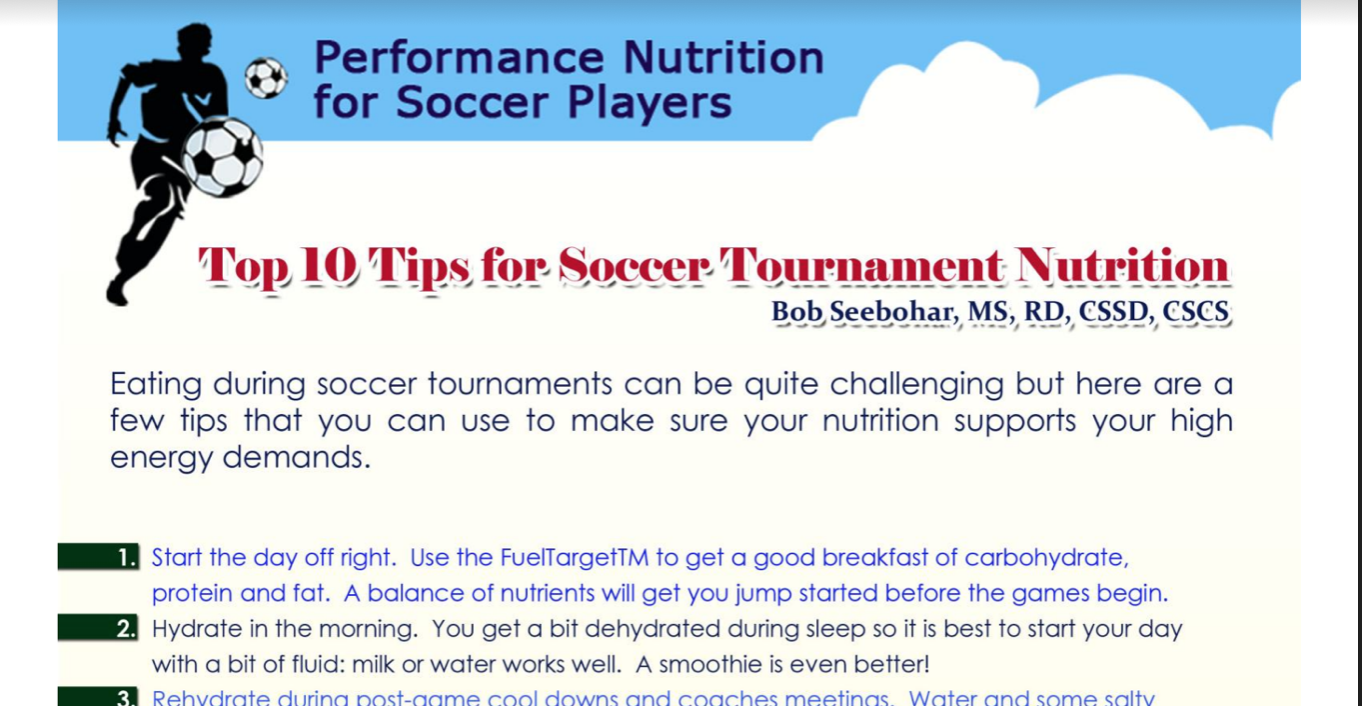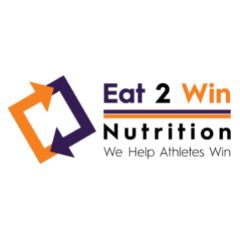5 Game Changing Strategies to Improve Soccer Performance
Nutrition for soccer players is very important due to the mental and physical demands of the sport. It requires high amounts of energy, endurance, and concentration for 90 minutes from each player on the team. As many elite soccer players know, training is important, but proper nutrition is the key to optimal performance. Here are some simple but game-changing food and nutrition strategies to help all soccer players improve their performance.
#1 Don’t Cut Out Carbohydrates
Soccer is a demanding sport, and carbohydrates are the primary fuel used to meet those demands. When soccer players do not consume enough carbs, their muscles cannot perform optimally. A lack of carbohydrates can cause a delay in decision making, since carbohydrates are the brain’s primary fuel source. Consuming the proper amount, and types, of carbohydrates will help soccer players perform at their ultimate levels.
- Here is a list of quality carbohydrates:
- Potatoes: white and sweet potatoes
- Brown rice
- Whole wheat items: such as breads and pastas
- Hot and cold cereals: such as oatmeal and any low-added sugar, bran/whole wheat varieties (for example, Raisin Bran and Shredded Wheat)
- Fruits and vegetables
- Beans, peas, and legumes
Click here for more information on quality carbohydrates.
#2 Eat Lean Protein
Protein is needed for the growth and recovery of muscles, making it an important part of a soccer player’s diet. This is especially important for younger soccer players since they have higher protein needs than non-athletes of the same age.
- Here is a list of lean proteins:
- Chicken or Turkey Breast
- Center Cut Pork
- Eggs
- Lean Steak
- Extra Lean Ground Beef
- Seafood: White Fish, Crab Meat, Shrimp and other Shellfish
- Low-fat or Fat-free Dairy products, such as: Cheese, Cottage Cheese, Greek Yogurt, and Milk
- Beans and Legumes
- Nuts and Seeds
- Tofu and Soy Products
Click here for more information on quality proteins.
#3 Focus on Healthy Fats
Fat may have a bad reputation, but it is an essential nutrient – especially for athletes. Fat is needed for the absorption of certain vitamins and the production of hormones. It’s also the most calorically-dense nutrient, containing 9 calories per gram, which can be helpful for soccer players who have high calorie needs. Fats can be broken into two main categories: Saturated fats and unsaturated fats. It’s best to choose unsaturated fats, and consume them in moderation.
- Here is a basic list of unsaturated fats:
- Nuts and Nut Butters
- Vegetable Oils
- Seeds, including: Flax, Chia, and Sunflower Seeds
- Avocado
- Fatty Fish
Click here for more information on healthy fats.
#4 Stay Hydrated
About 60% of our body weight is made up of water. When dehydration occurs- either from excessive sweating or lack of fluid intake- there is a negative impact on an athlete’s performance. Monitoring hydration levels to avoid this is important. An easy way to monitor hydration is by viewing the color of your urine. If your urine is a dark color (like apple juice), then your body needs more water. If your urine is light to almost clear (like lemonade or water), then your hydration levels are fine. For a visual of this check this out( https://www.mysportsd.com/howtotellifhydrated). Another method for monitoring hydration is by counting how many times you use the bathroom. For this method, using the restroom every three hours throughout the day indicates adequate hydration.
Click here for more information on the roles of water and why water is important.
#5 Pay Attention to Nutrient Timing
It’s not only what you eat that’s important, but also when you eat it. Proper nutrient timing helps ensure that you will have the energy needed to make it through soccer practices and games.
- Before: If you have 3 – 4 hours before a soccer game or practice, eat a well-balanced meal consisting of complex carbohydrates, lean protein, and some healthy fat, since you will have time to digest these nutrients. If it has been longer than 4 hours since your last meal, you should eat a smaller meal 1-2 hours before your practice or game. This will add to the nutrient stores already within your body, giving you the extra energy that you need.
- If you are needing to eat a snack 45 to 60 minutes before a soccer game or practice, it is important to keep it smaller and simple to digest. This snack should be mainly carbohydrates and some protein. Avoid fats and high fiber snacks because these nutrients slow down digestion, are harder to digest, and may cause stomach discomfort.
- Here are some example of meals and snacks to have before soccer practices or games (what you choose, and the portion, will depend upon how much time you have before playing):
- Oatmeal and egg whites
- Whole wheat/bran cereal with low fat milk
- Non-fat Greek yogurt with fruit
- Bagel with jelly/jam and fruit
- Sandwich/sub that consist of whole wheat bread, turkey breast/chicken breast, low fat or non fat cheese, and mustard
- Chicken breast and potatoes (white or sweet potatoes)
- Whole-wheat pasta with tomato sauce and chicken
- During: It can be hard to consume food, so drinking water or sports drinks may be best. Commercially available sports drinks vary in carbohydrate and electrolyte content, so choose which type to drink based on your needs. Avoid beverages too high in carbohydrates, though, as this can cause a spike in blood sugar, followed by a crash in energy.
After: It’s important to replenish the nutrient stores that were used during a soccer practice or game. The best post-soccer meal or snack consists of carbohydrates, proteins, and fluids.
Click here for more information on nutrient timing and other ideas for pre-practice/game foods for soccer players.
- This online course, taught by Tavis Piattoly and Ronnie Harper, co-owners of My Sports Dietitian, is a great resource to learn more about pre-game meals, hydration, and halftime nutrition.
There you have it! These are some general guidelines to follow that can help soccer players perform optimally.
Download Infographic

Resources and links
- Performance Nutrition for Soccer Players Podcast
- Performance Nutrition for Soccer Players eBook
- How does Nutrition Periodization Improve Soccer Players Athletic Performance?
- How Does the Fuel Target Method to Energize my Soccer Performance?
- What Snacks should I Bring to my Soccer Tournament to keep me Energized all Tournament Long?
- How can I Tell if I’m Hydrated?
- What is the role of carbohydrates to improve athletic performance? How to make the best choices?



Facebook comments